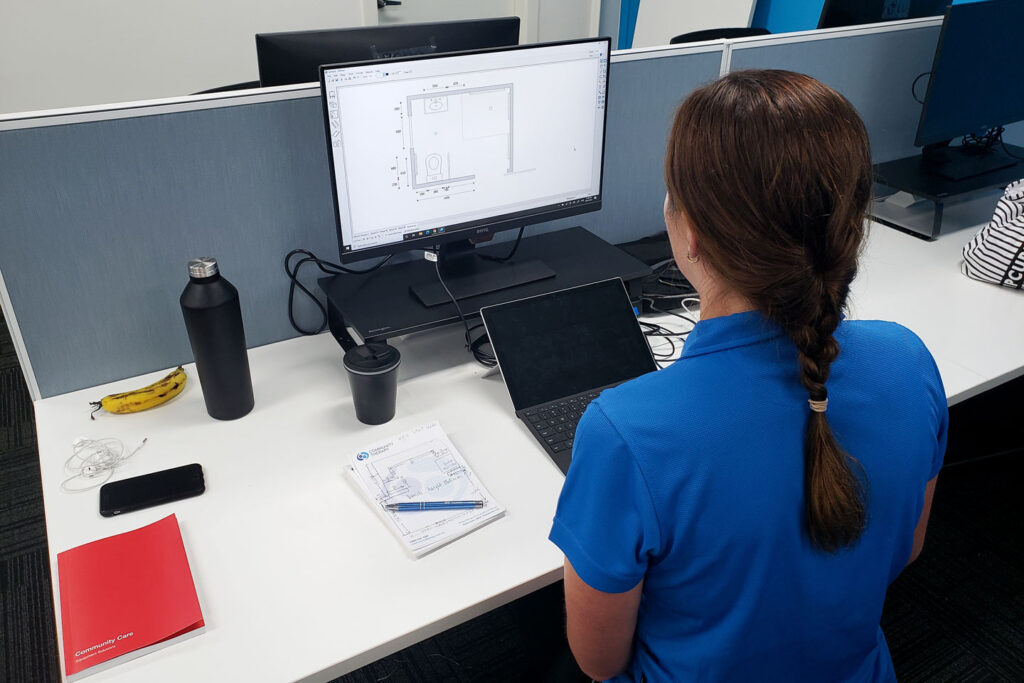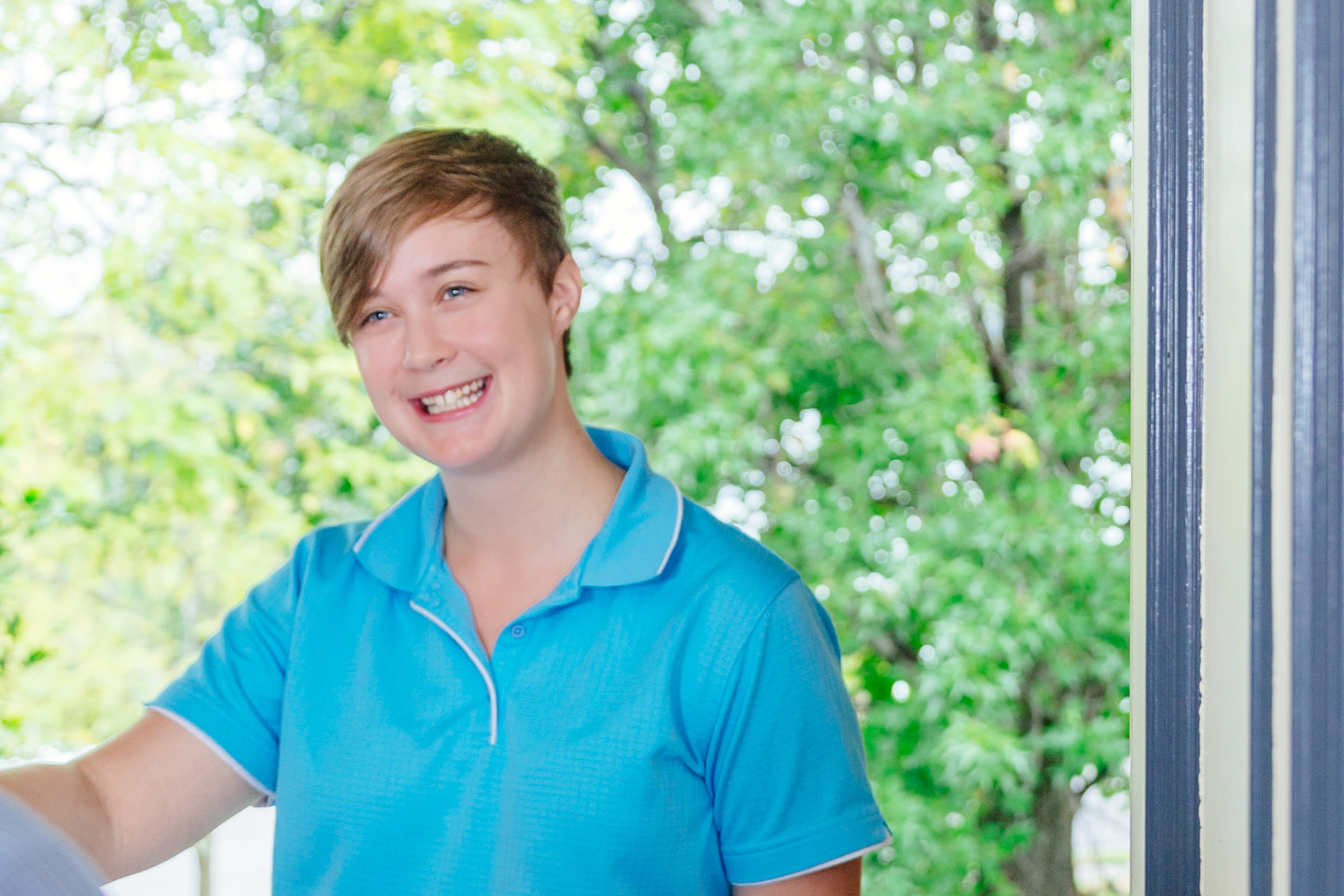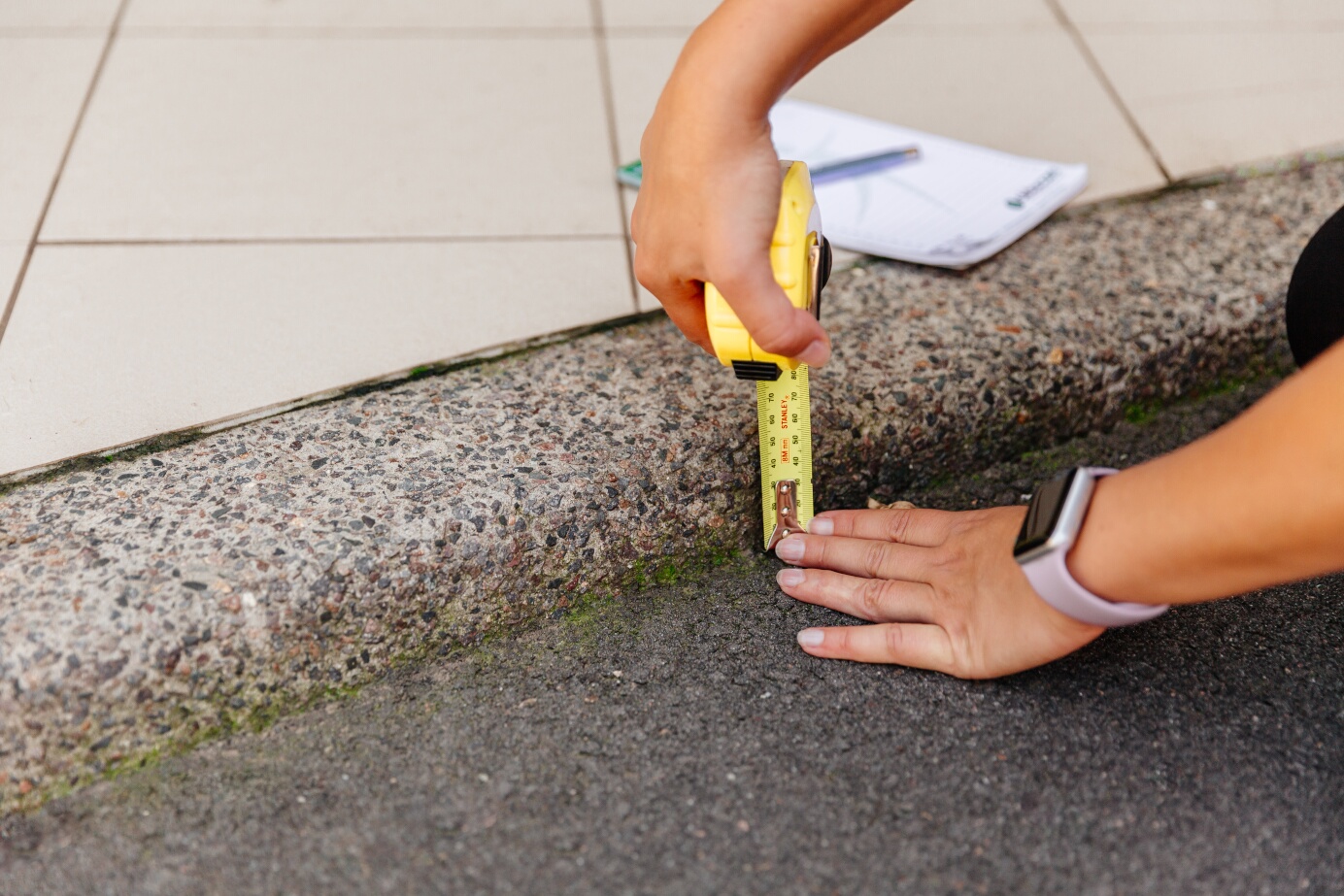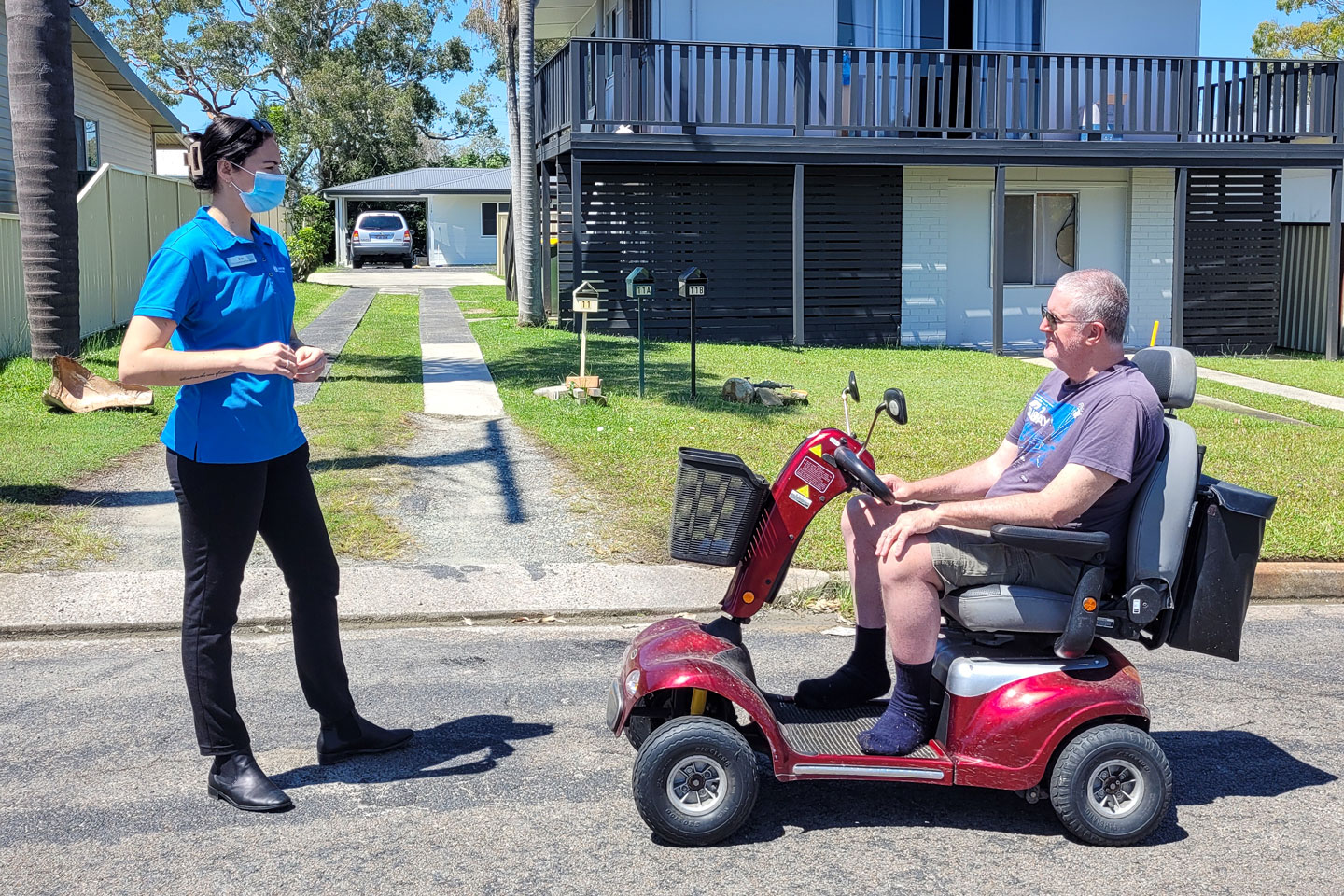What Is Specialist Disability Accommodation?
Specialist disability accommodation (SDA) is funding allocated to NDIS participants living with disabilities that have extreme functional impairments or very high support needs.
SDA refers to the actual physical accommodation itself and an example of high physical support SDA housing would be a building with ceiling hoists, video/intercom systems, emergency power systems, wide door openings, laminated glass, soundproofing, high impact fittings and fixtures.
Our Occupational Therapists are contacted to assess a person’s functional capacity, their support needs, equipment needs and environmental needs to ensure they are able to live as safely and independently as possible in the housing of their choice.

SDA Occupational Therapy Services
Our Occupational Therapists help determine what supports, equipment and environmental needs a NDIS participant have when they are considering moving into different housing. This ensures a NDIS participant moves into accommodation which is suitable to live safely and as independently as possible within.
SDA can be a variety of building types such as:
- Apartments
- Villa / Duplex / Townhouse
- House
- Group Home
Our Occupational Therapists are best suited to support adults (over 18 years old) living primarily with physical and/or neurological disabilities.

SDA Process with Community Therapy
Step 1 – Referral

When we receive a referral we will first determine that we are a suitable provider for the participant to consider. The participants needs to be an adult (over 18 years old) living primarily with physical and/or neurological disabilities.
If the participant or support person decides to engage our services we will take their information and allocate them to one of our wonderful Occupational Therapist’s who will then phone to organise a suitable day and time for their first appointment.
Step 2 – Assessment

At our first appointment, we will discuss with the NDIS participant and family or support people what they are looking to achieve.
We will then commence an assessment of how the participant is currently living and carrying out daily tasks as well as assess for environmental and equipment considerations. We will discuss a plan to move forward with and complete a service agreement.
Step 3 – Services

Our Occupational Therapist will complete the necessary assessments and reports required to achieve the goals agreed upon.
Step 4 – Ongoing Support

Our Occupational Therapist will keep the NDIS participant and family or support people up to date with the progress of assessments and reports.
Our Occupational Therapists will support participants to build skills in the new environment and monitor any modification or equipment requirements over the next few months or however long the participants requires input.
Specialist Disability Accommodation FAQ
-
Do you provide transitional support?
Yes.
The OT will compile a report to assist with your move out of your parents’ home, out of an institution, hospital or aged care facility.
-
What happens if the participant is required to move properties?
If a participant chooses to move properties they should engage with an Occupational Therapist to ensure that the property that they are moving to is safe and suitable for their needs.
-
Are you capable of all five design categories (basic, improved livability, fully accessible, robust and high physical support)?
Yes, Community Therapy’s Occupational Therapist’s are able to assist NDIS participants that are living in or going to live in SDA of any of these categories.

